A new path for soft plastic packaging in Australia
The Australian Food and Grocery Council (AFGC) is uniting brand owners, retailers, and recyclers across the soft plastics supply chain to form a nation-wide Product Stewardship Scheme.
The development of this industry-led soft plastics scheme is critical as it is driving investment into new recycling technologies here in Australia, that are turning used, hard-to-recycle soft-plastics, back into new products including food grade packaging. The scheme is also making it easier for people to recycle soft plastics at home, allowing for larger quantities of soft plastics to be captured and recycled.

The AFGC commenced work on this scheme in 2020 with funding support from the Australian federal Government’s National Product Stewardship Investment Fund.
How it works
- The scheme is collecting soft plastic packaging, things like bread and cereal bags, frozen vegetable packets, confectionery wrappers and plastic toilet paper wrap.
- As an industry-backed scheme, food and grocery manufacturers pay a small levy to support the cost of collection and administration.
- Collection will be through an expanded kerbside collection program.
- The bags are extracted from recycling streams at sorting facilities and sent for processing.
- After being sorted, cleaned and shredded, separate soft plastic types are sent to advanced recycling facilities where high-tech processes break the plastic back down into oil – the same type of oil that plastic is made from in the first place.
- That “plasticrude” oil is then ready to be made back into clean, food-grade plastic packaging.
From trials to pilots
The Scheme has completed trials during 2022-2023 and is now set to implement improvements in larger scale pilots. These practical pilots will continue pursuing efficient and effective collections and processing of soft plastics. With the formation of a Product Stewardship Scheme with retailers and many brands, pilot collections will include kerbside, return to store and other drop-off collection services.
The scheme is focused on taking hard-to-recycle soft plastic packaging out of the waste stream and recycling it into new products including food-grade material. As a true circular economy model, the scheme aims to make it easier for people to recycle soft plastics at home and support the development of a new, advanced recycling industry here in Australia.
Dedicated kits for bag-in-bin pilots |
Households in pilot areas receive special orange bags with information on what soft plastics can be recycled and how to recycle them. Participants will be instructed in how to fill the special orange bags, tie them, and put them in their yellow-lid kerbside recycling bin. For now only households in the selected pilot areas can take part in the bagged soft plastics recycling pilots.
In the kerbside pilots, the bins will be collected and taken to a Materials Recovery Facility (MRF) as usual. At the MRF, the recycling bags will be extracted from the waste stream and sent for sorting and processing. The pilots will help design the model for collections and sorting, one that provides a clean stream of used soft plastics and can be scaled up for an emerging advanced recycling industry. We also use the pilots to work with our recycling partners to understand where they need additional resources or equipment, in order for the recycling to be effective and efficient.
The number of households and areas will continue to expand as the pilot collection results are analysed and adopted, and Australia’s regulatory frameworks evolve.
Gathering data |
The soft plastic scheme will gather data at several points in the supply chain to assess the uptake and effectiveness of collection and sorting, as well as quality of material returned. Customer satisfaction surveys will also be conducted. All this information will continue to map the most effective direction for Australian soft plastics recycling and the scheme.
Our scheme supporters have committed funds to pilots and circular plastics in Australia.
Councils participating in the pilot
- Macedon Ranges Shire Council
- Albury and Wodonga councils
- Alpine Shire Council
- Indigo Shire Council
- Ballarat City Council
- City of Adelaide
- City of Charles Sturt
- City of Port Adelaide Enfield
Material Recycling Facilities participating in soft plastic packaging kerbside collection pilots:
- Central Adelaide Waste and Recycling Authority (CAWRA) (A joint initiative of the Cities of Charles Sturt and Port Adelaide Enfield)
- HalveWaste, Albury/Wodonga region
- APR, Melbourne
Creating Australia's circular packaging future
The nationally coordinated soft plastic scheme is a key program that will help Australia transition to a circular economy and help meet the National Packaging Targets. By laying out a plan for plastics recycling from collection, through recycling and onto new end markets, the scheme is helping build a genuine and reliable circular economy for plastic packaging.
FAQs for residents in Council pilots
Q: When will the pilots begin?
A: The phase 2 pilots will roll out from July 2024. Some will start later in the year or early in 2025. Please check your local council website for more details.
Q: I do not live it a council or designated area that is participating in the pilot, can I still participate?
A: Unfortunately, not yet! If you do not live in a participating council or designated area, you are unable to participate in the pilot at the moment, but this will change as we learn how to best collect and recycle soft plastics at scale and increase the offering across Australia. It’s important we get things right and don’t overload the system during this time.
Q: What do you mean by ‘soft plastics’, what materials am I allowed to put in my collection bag?
A: Soft plastics are ‘scrunchable’ plastics. We want all your empty, dry soft plastics such as bread bags, confectionary wrappers and dog food bags, placed into the specially designed orange bag, then popped into your yellow lid kerbside bin. Be sure to keep placing your other recyclables loose in your bin as you’ve always done, such as glass jars and cans. To learn more about what you can put in your collection bag, download our Soft Plastics Fact Sheet.
Q: Why do I have to put my soft plastics in the orange collection bag?
A: The people and machines at your local recycling facility cannot sort thousands of bits of loose soft plastics, it’s much easier for soft plastics to be contained in a clearly identified special orange bag. We have designed the bag to work perfectly in the facilities, so they can easily identify, sort and recycle them. However, this is the only bag they will accept, so keep your soft plastics in the bag and your other recyclables can keep being placed loose in your bin.
Q: Why are you encouraging me to fill my collection bag tight before I put it in the bin?
A: There are lots of reasons. Full bags are easier to sort at the recycling facility, they are more efficient by using less plastic, less bags means lower costs and lower environmental impact. So, put your special bag out when it’s full and tight like a basketball, not necessarily every bin cycle. Each bag can hold up to 1kg of soft plastic!
Q: My bins are overflowing, costs are rising and it’s hard to change habits. How will this program help?
A: We have tried to make your recycling as easy and low cost as possible, and we want this to work for a better future. The orange bag collection can help you save space in your general waste bin as you are now able to put bagged soft plastics into your recycling bin.
Q: Are the recycling companies and the scheme overall reliable? Who is involved?
A: The scheme is being set up by the Australian Food and Grocery Council, in conjunction with a range of stakeholders including retailers and brand owners. The scheme was designed leveraging global best practice including taking insights from Europe, and has utilised funding from industry and the Australian Government.
The new orange bags are made locally in Melbourne from 100% recycled Australian plastics. The sorting and recycling activities are carried out by a range of our partners including APR in Melbourne, Cleanaway in Albury, and CAWRA in Adelaide (insert links), as well as Close the Loop in Melbourne and IQRenew in Taree. The plastics will be processed into flake, pellets or building substitutes, as well as into oil for renewed plastics by entities such as Viva in Geelong. All councils and companies involved in the pilot are collaborating with agreements in place.
Q: What is a Product Stewardship Scheme?
A: A Product Stewardship Scheme aims to address a market failure by producers (in this instance the owners of the branded products that use soft plastic packaging) paying the true cost of the packaging they manufacture and put on market, ensuring it gets recycled and does not end up as plastic pollution or waste. Producers pay a levy to a Product Stewardship Scheme administrator who coordinates and funds the scheme to undertake collection, recycling, marketing and other activities.
Q: What will my soft plastics be made into?
A: We expect a portfolio of recyclers and products from the collected plastics, including mechanical and chemical recycling options. Advanced chemical recycling breaks plastic down into oil that can be used to make food-grade soft plastic packaging, reducing the use of virgin materials, and creating a truly circular soft plastic supply chain. Other products also in scope with our partner companies include mechanically recycled products such as the orange bags, garbage bags, fence posts, asphalt, and concrete additives.
Q: What happens at the end of the pilot?
A: Throughout the pilot the councils, recyclers, brands, governments and all our partners will be collecting data and information on what works and what can be improved to inform the next phase to grow the program. You can contribute via surveys from your council during the pilot phase. All this valuable information will help us create the best national roll-out plan for recycling of soft plastics.
Q: Can I provide feedback and ideas on the program?
A: Yes, you can. During the pilot, your council will invite you to complete some surveys. We look forward to hearing your views on how we can improve the program.
Q: When will soft plastics be able to be recycled Australia wide?
A: Pending positive results from the pilots, we will continue to work with all stakeholders to design a national roll-out plan. Unfortunately, collections can only be expanded in line with processing and recycling capacity which remains very limited in Australia. This is why it is essential we have good planning and collaboration between all parties involved in this pilot and scheme.
General Soft Plastic Scheme FAQs
Q: What is currently happening with soft plastic recycling in Australia?
A: Brands are proactively changing packaging designs to improve recyclability and recycled content use, and over 40 of Australia’s largest brands have joined the soft plastic recycling scheme and are paying levies to fund the program. The Australian Government is introducing a range of packaging regulatory reforms including; packaging design standards, including the inclusion of recycled content and designing for packaging recyclability together with collection and recycling rates. Governments at national and state levels are also incentivising companies to invest in building new sorting and recycling facilities for soft plastics. All this is very positive for Australia.
Q: What is a product Stewardship Scheme?
A: A Product Stewardship Scheme aims to address a market failure by producers (in this instance the owners of the branded products that use soft plastic packaging) paying the true cost of the packaging they manufacture and put on market, ensuring it gets recycled and does not end up as plastic pollution or waste. Producers pay a levy to a Product Stewardship Scheme administrator who coordinates and funds the scheme to undertake collection, recycling, marketing and other activities.
Q: Where are soft plastics currently being recycled, and into what products?
A: We expect a portfolio of recyclers and products from the collected plastics, including mechanical and chemical recycling options. Advanced chemical recycling breaks plastic down into oil that can be used to make food-grade soft plastic packaging, reducing the use of virgin materials, and creating a truly circular soft plastic supply chain. Other products also in scope with our partner companies include mechanically recycled products such as the orange bags, garbage bags, fence posts, asphalt, and concrete additives.
Q: When will soft plastics be able to be recycled Australia wide?
A: Pending positive results from the pilots, we will continue to work with all stakeholders to design a national roll-out plan. Unfortunately, collections can only be expanded in line with processing and recycling capacity which remains very limited in Australia. This is why it is essential we have good planning and collaboration between all parties involved in this pilot and scheme.
Q: Why has the AFGC formed a partnership with the major supermarkets in the Soft Plastic Taskforce?
A: The Soft Plastic Taskforce was formed with the Australian Government in late-2022 and secured an ACCC authorisation to address the stockpile of soft plastic material uncovered following the collapse of REDcycle. This scheme unites retailers and brands in developing a harmonised national soft plastic recycling system. Like AFGC members, the Taskforce members Woolworths, Coles and ALDI are retailers and brands who put product into the Australian market using soft plastic as packaging and are therefore liable to pay a levy to the scheme.
SUPPORT
On this page you can find details about the partners and Supporter brands making the scheme and pilots possible, plus our recycling partners.
Supporter Brands
As an industry-led product stewardship scheme, funding support from brands is vital for successful pilots and operations.
The Pilot Supporters are:
 |
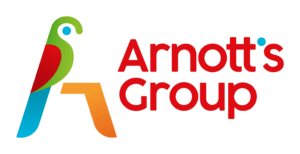 |
 |
 |
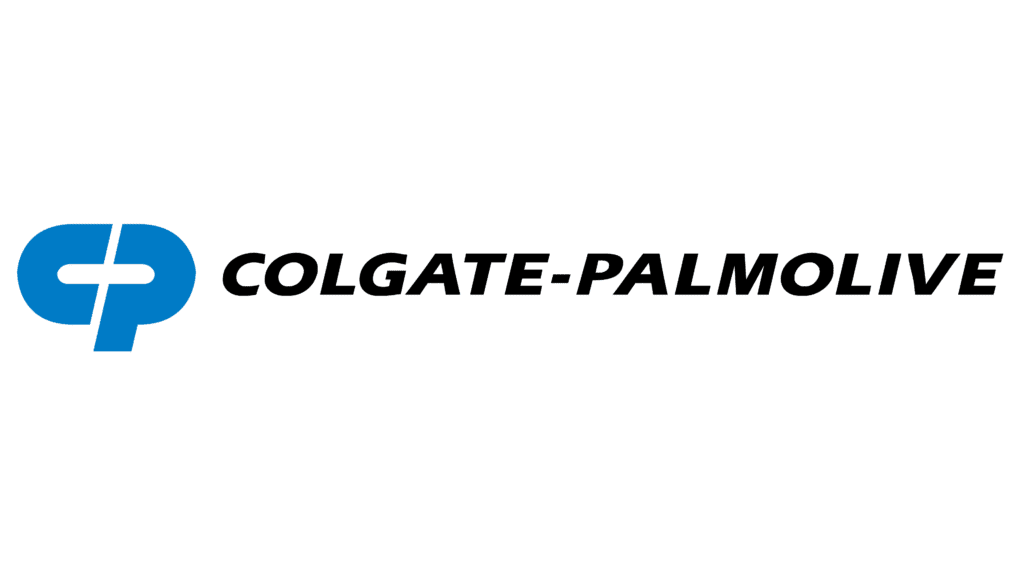 |
 |
 |
 |
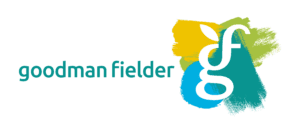 |
 |
||
 |
 |
 |
 |
 |
|
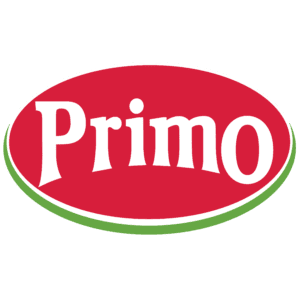 |
 |
 |
 |
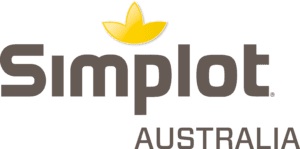 |
 |
 |
 |
 |
 |
 |
 |
 |
|
 |
 |
 |
|
|
|
 |
 |
 |
 |
 |
 |
 |
 |
Pilot processing partners
NEWS
Reports
- NPRS Trials Review – Final report (PDF 4MB)
- NPRS Trials Review – Final report Executive Summary (PDF 1.1MB)
Learn more about soft plastics recycling
- Nestlé KitKat wrapped with 30% recycled plastic
- The CSIRO Tackling Plastic Waste mission
- Development licence approved for Licella’s Advanced Recycling Victoria plastic resource recovery plant
- Amcor & Licella partner on new soft plastics advanced recycling facility
Media releases
Following are links to associated AFGC media releases.
- Kerbside trials win new recruits to soft plastics recycling
- Cleanaway and Qenos engage with the NPRS
- Food and grocery manufacturers driving progress on solutions for plastic packaging recycling
- Soft plastics taskforce supports industry-led recycling scheme as the way ahead for Australia
- Kerbside recycling trial aims to close the loop on soft plastic packaging
- Food and grocery industry supports closing the loop on soft plastic packaging with new recycling trials
- Statement on RedCycle
- AFGC applauds joint action on soft plastics recycling
UNPACKED | NPRS Newsletter Archive
RESOURCES
Soft Plastics Summit
Over 200 people participated in briefings in late September 2023 featuring Australian and international speakers on soft plastics stewardship schemes.
Download slides >>
Social media
LinkedIn showcase page >>
Follow us for the latest updates and information on the scheme.
Image gallery
A selection of downloadable imagery related to the scheme.
 |
 |
 |
 |


